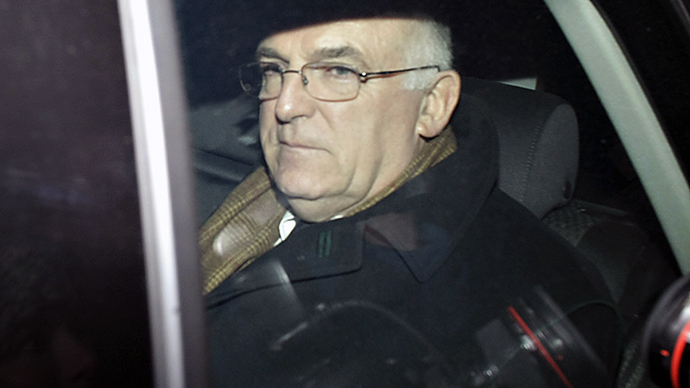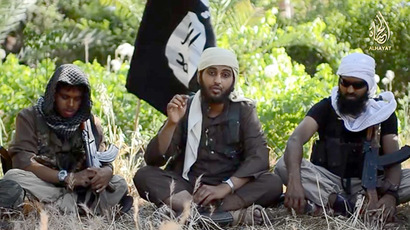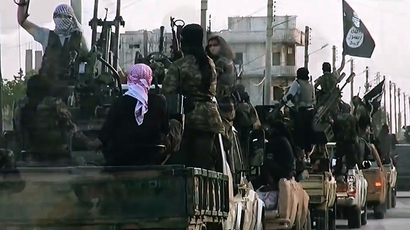Islamic threat is exaggerated by ‘oxygen of publicity,’ says former MI6 chief

The former head of British intelligence warned that the threat of ‘pathetic’ British jihadis is being given undue attention in the government and media, a message that is at variance with that of UK PM David Cameron.
Addressing the Royal United Services Institute, a London-based defense think-tank, Sir Richard Dearlove, the former MI6 director, said the problem of Islamist extremism today has only "marginally affected" the West, yet the government and media were exaggerating the threat of Islamic fundamentalism by vilifying "misguided young men, rather pathetic figures," who were gaining free publicity beyond “their wildest dreams."
Watch: Anti-ISIS Syria rebel commander delivers speech with 'Hello Kitty' notebook
"It is surely better to ignore them," he advised.
Dearlove, who now serves as master of Pembroke College, Cambridge University, spoke on the current crisis brewing in Iraq, describing the ongoing battle between the Islamic State in Iraq and the Levant (ISIS) against Shia-led Iraqi forces was "essentially one of Muslim on Muslim."
He said the British government and the media were giving the extremists the "oxygen of publicity,” in essence promoting a mindset that was detrimental to British society. The former intelligence chief, who served as MI6 chief from 1999 to 2004, gave his comments just hours after the television program, Good Morning Britain, ran an interview with a British Muslim who had appeared in an ISIS video saying he was prepared to give up his life for the cause.
Abdul Raqib Amin told Good Morning Britain: "I left the UK to fight for the sake of Allah, to give everything I have for the sake of Allah. One of the happiest moments in my life was when the plane took off from Gatwick airport. I was so happy, as a Muslim you cannot live in the country of kuffars [non-believers in Islam]."
Amin added: "I left the house with the intention not to go back, I'm going to stay and fight until the khilafah [rule of Islam] is established or I die."

Dearlove pointed out that jihadist attacks against the West,
which included the September 11, 2001 attacks on the United
States, and the July 7, 2005 terrorist bombings on the London
Metro, as well as other deadly events, have subsided of late,
signaling a new phase in the global struggle that pits Sunni
Muslim against Shia Muslim, thus perpetuating an age-old internal
struggle inside Islam.
The Western world cannot continue to allow the “distortions
of 9/11,” blurred as they were by a palpable level of fear
and loathing, to "dominate our way of thinking about national
security," he said.
Richard Dearlove ex Mi6 one of Blair's war criminals who rendered dissidents to Libyan torture tables now says extremists no danger. Duck!
— George Galloway (@georgegalloway) July 7, 2014
Dearlove, lamenting that the British spy agencies devoted a greater amount of reserves countering Islamist fundamentalism than they spent against the Soviet Union, argued that the West was not the main target of the radical fundamentalism that gave birth to ISIS.
Given this “disproportionate” level of concern over the Islamic threat, it is time for the West to take what he called a "more proportionate approach to terrorism."
This message is at odds with UK Prime Minister David Cameron, who expressed the fear that young Britons going to Syria will return to the UK radicalized, possibly carrying out terrorist attacks in the country.
Last month, Cameron said that foreign fighters in ISIS posed “the biggest threat” to UK national security.
"The number of foreign fighters in that area, the number of foreign fighters including those from the UK who could try to return to the UK is a real threat to our country," he said.
According to government estimates, about 500 Britons are currently fighting in Syria.














